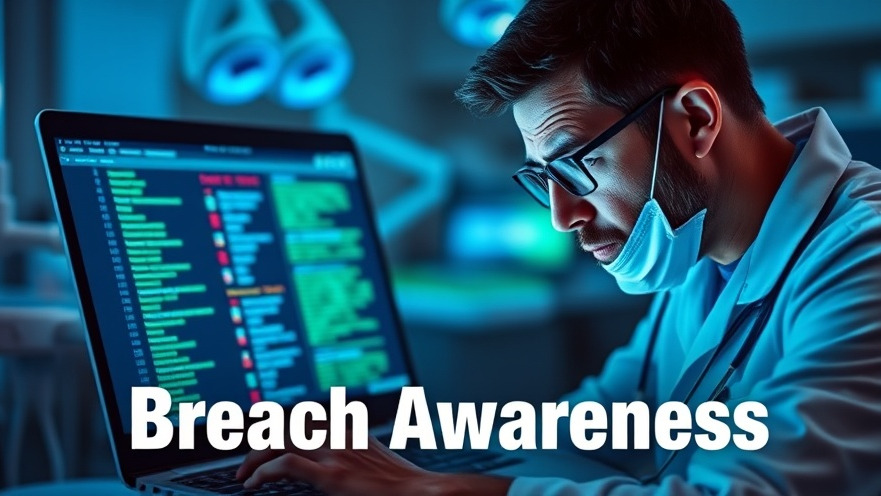
Understanding the Implications of Email Breaches in Healthcare
The recent email breach at Precision Endodontics of Raleigh highlights a growing concern in the healthcare sector regarding data security. The practice reported that on June 10, an unknown entity accessed their email account, resulting in the exposure of sensitive patient information. Although the practice asserts that there is no current evidence suggesting that the accessed information—comprising full names and email addresses—has been misused, the breach raises significant alarm bells for both practitioners and patients alike.
The Growing Frequency of Data Breaches in Healthcare
Data breaches in healthcare are becoming increasingly commonplace. Just a month before the Precision Endodontics incident, several practices faced similar fates, including a data breach at a Texas oral surgery practice that impacted over 11,000 individuals. With breaches reported frequently, the healthcare sector must reevaluate its data security protocols. As outlined in cybersecurity studies, healthcare organizations are often prime targets for cybercriminals due to the valuable nature of patient data.
Legal Repercussions and Patient Trust
This incident has important legal implications for Precision Endodontics, as it was reported to the Health and Human Services (HHS) Department's Office for Civil Rights Breach Portal on August 5, affecting 4,022 individuals. The legal frameworks surrounding data breaches, such as HIPAA, emphasize the necessity for organizations to protect patient data. A breach of trust can lead to significant reputational damage and potential legal action, further undermining patient confidence in the practice.
How Practices Can Strengthen Their Cybersecurity
In light of recent breaches, dental practices need to strengthen their cybersecurity measures. Implementing multi-factor authentication for email accounts can drastically reduce the risk of unauthorized access. Additionally, educating staff about phishing attacks and suspicious email practices can empower them to recognize threats before they escalate. Regular cybersecurity training and updates to software systems are also crucial components in maintaining robust data protection.
Future Trends in Data Security for Dental Practices
As technological trends evolve, the integration of advanced security systems, such as blockchain technology, will likely offer a new paradigm for patient data protection. Blockchain, with its secure, decentralized nature, poses a promising solution for safeguarding sensitive information. As practices look to the future, it's critical that they stay informed about evolving threats and adaptive strategies to maintain patient trust.
Common Misconceptions about Data Breaches
One prevalent misconception is that smaller practices are safe from data breaches. However, as evidenced by incidents affecting smaller dental offices, no organization is immune. Cybercriminals often target smaller practices due to perceived vulnerabilities. Additionally, some practitioners may underestimate the significance of thorough data protection policies until a breach occurs, which can lead to severe repercussions.
Conclusion: Taking Action for Better Security
In conclusion, the email breach at Precision Endodontics serves as a critical reminder of the vulnerabilities associated with digital communication in healthcare. As various dental practices increasingly rely on electronic systems to manage patient data, understanding and addressing the risks becomes essential for maintaining trust. Practices can take proactive steps by investing in robust cybersecurity measures and educating their teams, rather than waiting for an event to occur. Emphasizing the importance of data security now will help dental professionals cultivate a resilient practice capable of navigating the challenges of an increasingly digital landscape.
 Add Row
Add Row  Add
Add 




Write A Comment